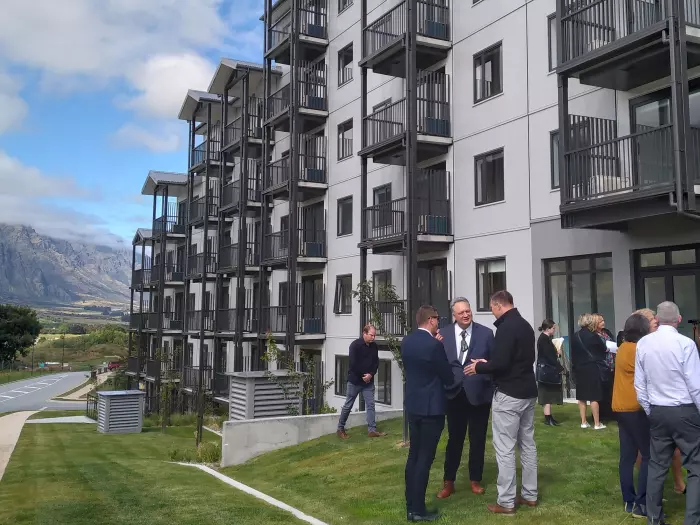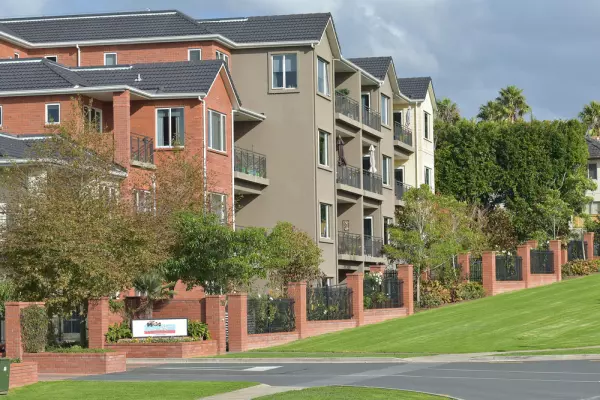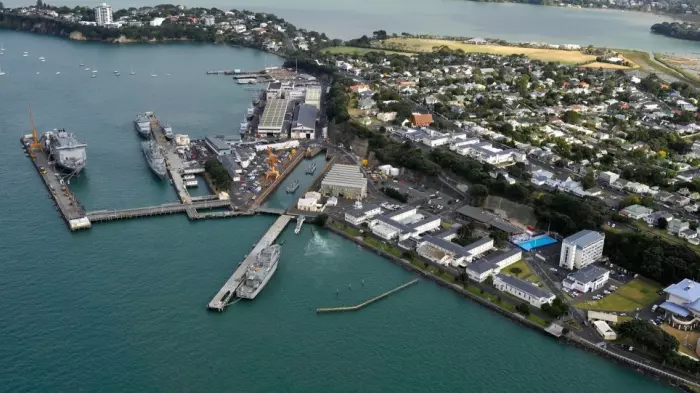The International Monetary Fund says the government should provide incentives to local authorities to help accelerate the infrastructure needed to fast-track new housing developments.
The global body of 190 member countries, set up to foster international monetary cooperation, told policymakers a comprehensive suite of policies is needed to deal with both demand and supply sides of the rampant property market, which has soared to new heights as low-interest rates and favourable tax treatment spur house prices to new highs.
The IMF backed new tools proposed for the Reserve Bank to lean against some of the imbalances in the market, and floated the idea of a capital gains tax, extending the brightline test, or a temporary stamp duty as a short-term fix to curb demand.
However, it said the supply side was trickier and needed a much broader approach.
Critical
Freeing up land supply and improving planning and zoning were critical to achieving long-term housing affordability, it said. Supporting local bodies’ infrastructure funding and financing could accelerate that.
Harald Finger, IMF division chief for Australia and NZ, told a briefing that more can be done by local councils but some are “financially constrained” and can’t provide the basic infrastructure needed for basic development in newly zoned areas.
“What we hear a lot, that at the local council level, there are financial constraints which prevent them from taking on that additional debt that would be needed to get the infrastructure development going,” Finger said.
“And so I think if there were some financial incentives provided by central government that could help make a difference for the local councils and for quicker process of zoning and then infrastructure development that is needed to get housing supply going a bit faster.”
That could be the sticking point holding up developers from proceeding with some plans and could also provide headroom to councils pushing up against their debt limits.
More headroom
The 30 councils with ‘A’ credit ratings signed up to the Local Government Funding Agency have already been given some extra headroom to take on more debt, although that initiative will start to taper off from the middle of next year.
Also, the government has started pitching in through the Provincial Growth Fund and the Infrastructure Reference Group projects.
Still, councils are facing mounting bills to replace and maintain existing infrastructure, particularly three-waters.
Finger said the government’s infrastructure drive – which predated covid – is a good policy to bridge the existing gap, and while the building sector is dealing with rising costs, there’s still ample capacity for firms to take on projects, particularly after six months.
He backs the government’s planned reform of the Resource Management Act in helping address the problems plaguing land supply.
“The one thing I would mention is that while it's being reformed, it could put everybody under some period of uncertainty on the policy uncertainty, which might hold people back a little bit. So that process will need to be managed carefully,” he said.
The IMF’s prescription also included increasing the stock of social housing – a key policy for the government.
Housing Minister Megan Woods was in Queenstown last week to launch the opening of the new Toru apartment development in Frankton.
Queenstown Lakes Community Housing Trust bought 50 apartments in the complex to help support affordable housing in the area through a mix of public housing, rent-to-own, and affordable rentals.
Trust deputy chair Joanne Conroy urged the minister to consider using inclusionary zoning – which compels developers to set aside a certain proportion of a development for affordable housing – to help broaden the available housing stock.















